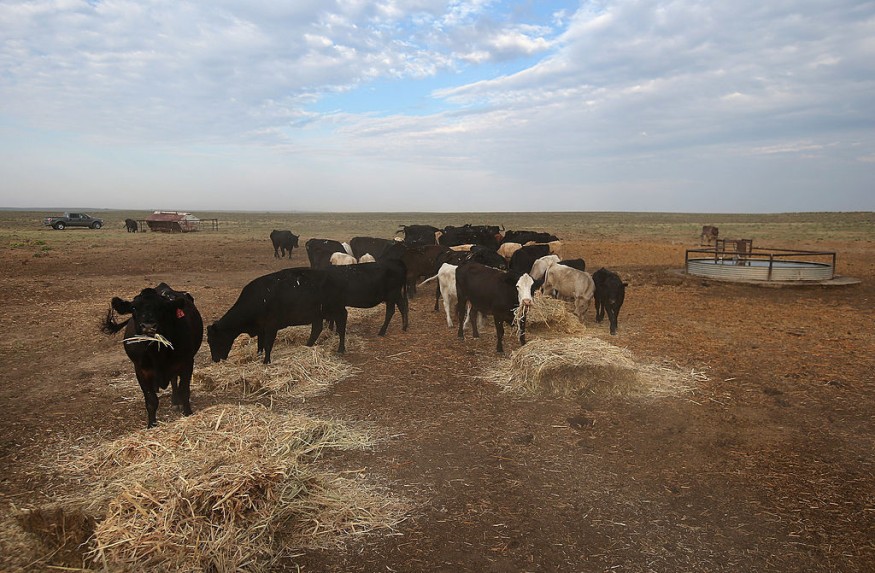Kansas is experiencing an unusual heat wave since last weekend, leading to the deaths of 10,000 fat cattle as recorded temperatures surpassed 100 degrees Fahrenheit.
The reported peak of the extreme heat spiked by Monday, June 13, reaching 104 degrees with a humidity as high as 35%.
While temperatures have relatively eased from Tuesday, June 14, the number of cattle deaths continue to pour.
The death toll is expected to further increase due to the continuance of the heat wave, which has no end in sight.
The recent heat wave is considered to be one of the worst natural disasters in Kansas. Livestock experts reportedly believed that the event has caused significant damage in livestock agriculture as of Monday, with no specific incurred amount of economic damage at this time.
Animal deaths, as well as human fatalities from heat stress, dehydration, and other hazards related to heat wave are common.
However, intense heat in the United States in recent years have indicated a worsening natural calamities due to climate change and global warming.
Kansas Cattle Deaths

The city of Ulysses, Kansas, received the impact of the heat wave and high humidity during the said period starting on Saturday, June 11.
There were evident frustration during the catastrophic event with the extensive losses in the state's livestock agriculture, according to Corbit Wall, a cattle analyst at the National Beef Wire, according to the DTN Progressive Farmer news site.
Wall apparently received such information from two non-media sources.
The site also shared a statement from A.J Tarpoff, a veterinarian from the Kansas State University Extension.
Tarpoff noted that the deaths related to heat stress in cattle feedlots appeared to start every June.
In addition, the veterinarian also explained cattle can accumulate heat in their bodies which can lead to death; this occurs when there is a "perfect storm" of heat and the absence of nighttime cooling.
Livestock Agriculture Impact
In relation to Wall's disclosure, the National Beef Wire has a real-time, interactive platform pertaining to news and developments in the cattle and agriculture industries.
Based on its site, there were no immediate reports that the cattle market has crashed down.
Nevertheless, there is a possibility of it in the short-term future based on its analyst's claim.
According to CNBC, Kansas is the third largest state in the US in the cattle industry, exceeding 2.4 million cattle in feedlots.
Texas and Nebraska are on the top of the list.
The US media outlet also said the Kansas cattle deaths occurred at a challenging time facing the country's cattle industry.
Producers have been reported to reduce their herds to adjust with the ongoing drought and food price hikes caused by the Russian-Ukrainian war.
Kansas Heat Wave
The extreme heat in Kansas was part of a larger, long-term heat wave forecast that will affect multiple parts of the US this week and throughout the summer season.
The recent event comes after the National Weather Service (NWS) issued a heat wave warning, including heat alerts and heat advisories, from California Louisiana, affecting over 60 million Americans, as cited by CNN.
© 2025 NatureWorldNews.com All rights reserved. Do not reproduce without permission.





